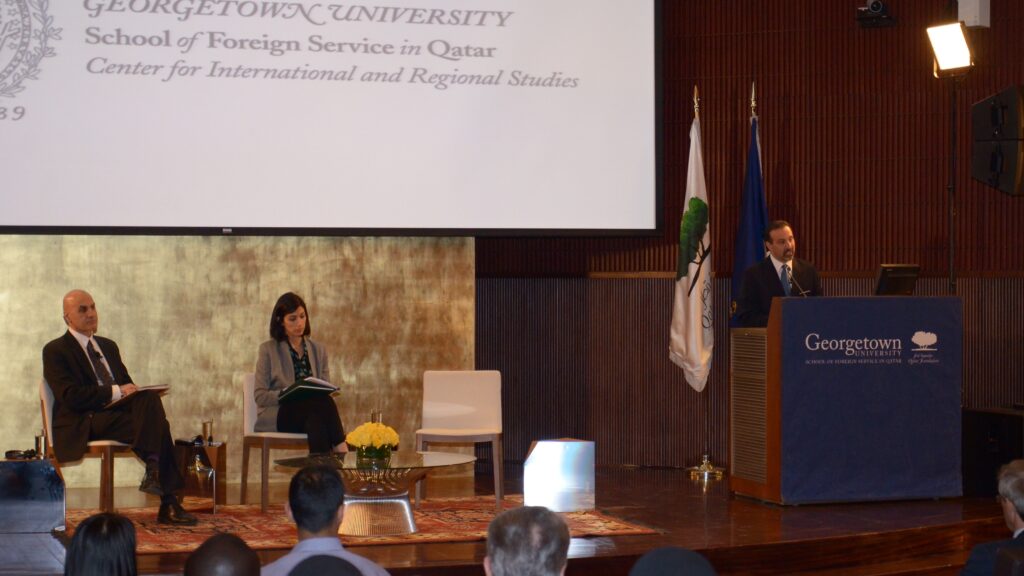War By Other Means: Georgetown Discusses Iran Under Sanctions

The Center for International and Regional Studies (CIRS) at the Georgetown University School of Foreign Service in Qatar (GU-Q) recently hosted a panel discussion titled “War by Other Means? Iran Under Sanctions” held on its campus in Education City. The panelists, Dr. Mehran Kamrava, Director of CIRS, Dr. Mansoor Moaddel, CIRS Visiting Scholar and Dr. Manata Hashemi, CIRS Post Doctoral Fellow, analyzed the history and consequences of US-led sanctions on Iran, leveraged amid US concern that Iran’s uranium enrichment could be turned into nuclear capability.
Event moderator, SFS-Q Dean Gerd Nonneman, said “Iran has been the subject of increasingly comprehensive sanctions because of questions over its nuclear program. The effect of these sanctions, however, has been anything but staightforward, either in terms of its impact on Iran’s population, politics and policies, or on the region and the global economy. A thorough analysis of these impacts, including unintended consequences, is absolutely vital.”
Panelist Mehran Kamrava focused on these consequences, saying “sanctions impact the daily lives of millions of people in terms of their access to basic goods, especially medicines and other necessities. So we specifically want to know how the Iranian poor are coping with the sanctions, and to understand the mechanisms and strategies of circumventing blockages to these basic goods.”
The panelists likened this push and pull between the involved parties to armed conflict. Kamrava asserted that “there has always been an assumption that sanctions are a prelude to war, or a different type of war. The goal of this war is that through the imposition of sanctions, pressure will be put on the Iranian government in its negotiations with the US and its allies over the nuclear issue.” Despite the high cost to the vulnerable segments of Iranian society, this war appears to be failing to create indirect pressure on the Iranian government through internal market and social conditions. Kamrava concludes that “the sanctions are actually quite counter-productive. In other words, sanctions, our analysis shows, are having the exact opposite effect of their intended purpose.”